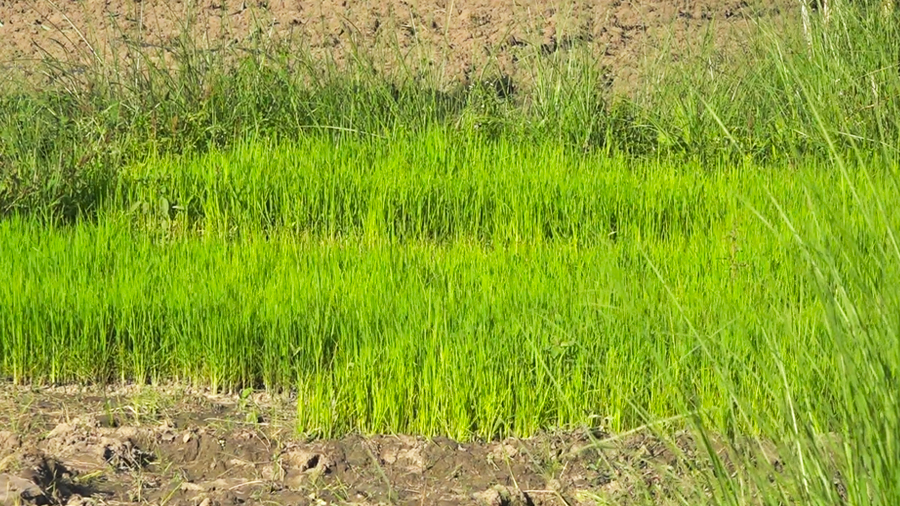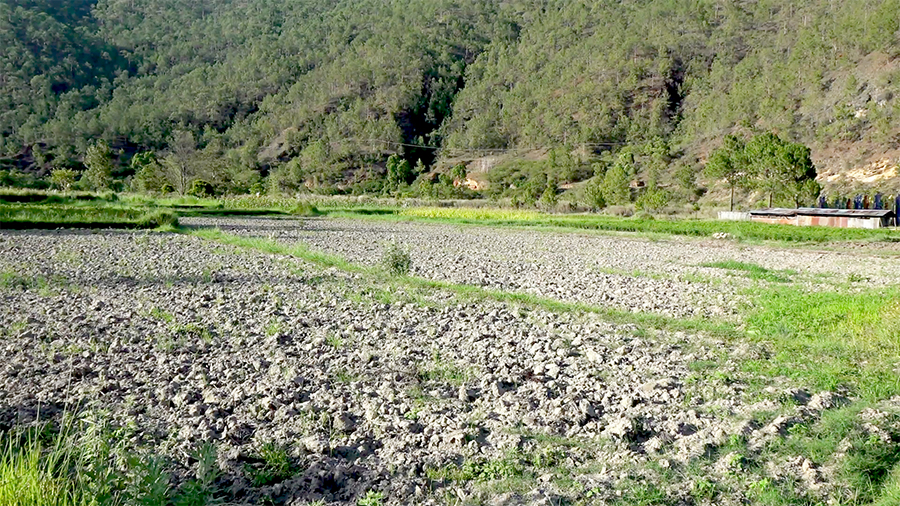
Paddy growers across the country are expecting a lower yield this year due to the delayed onset of the monsoon. As a result, most of them have decided to focus on cultivating enough paddy for their consumption. The delay in monsoon has significantly impacted farming practices in the country. In districts that rely on rainwater for irrigation, paddy cultivation has started later than usual.
 Typically, at this time of the year, farmers start weeding the paddy fields. However, this year, cultivation activities have just begun. The water sources that usually swell in summer are now scarce and inadequate for paddy cultivation.
Typically, at this time of the year, farmers start weeding the paddy fields. However, this year, cultivation activities have just begun. The water sources that usually swell in summer are now scarce and inadequate for paddy cultivation.
“Last year, we completed paddy cultivation on 1st June. But this year, due to the late monsoon, we could not cultivate at the usual time. We waited until recently for the monsoon to start cultivation. People here have no alternatives to rainwater and we also don’t have any alternative crops other than paddy,” said Pratab Singh Pulami, a farmer from Kilkhorthang Gewog in Tsirang.
“The stream here is very small and if it doesn’t rain, the water for irrigation is insufficient. We have to then do cultivation in turn. We solely depend on rain for irrigation water,” said Bakta Bdr Pulami, also from the same gewog.
“All the people in the district depend on agriculture. The delayed rainfall has resulted in the drying up of all the water sources. It has not only delayed paddy cultivation but also damaged the vegetables,” said Dawa Gyeltshen, Dochhukha-Dzomlingthang-Ritsa Tshogpa, Guma Gewog in Punakha.
However, the recent shower has given them some hope to start cultivating crops.
Although the recent rainfall has helped people start the work, it is still insufficient for all the terraces.
“If it doesn’t rain this week, the remaining terraces will be left barren. This is because we have a small stream and the water has to be divided amongst four villages. If half of the water is put into the cultivated terrace, then the terrace that has been ploughed remains dry,” said Lam Tshering, a farmer from Wangchang Gewog in Paro.
“Without water, the upper part of the terrace is left empty. The lower part was supposed to complete ploughing yesterday but could not. Fortunately, it rained a little yesterday night so the land is soft today. We would have started cultivating paddy by the day after tomorrow but the lack of water has delayed it,” said Pem Choden, another farmer from the same gewog.
Meanwhile, according to the Ministry of Agriculture and Livestock’s recent announcement, farmers have been advised to identify water sources, prepare mechanisms to collect water from nearby streams, grow crops that require less water and improve soil fertility using manure.
The announcement comes after the National Center for Hydrology and Meteorology (NCHM) predicted lesser rainfall this year. The forecast indicates a slightly hotter summer with lesser rainfall than the normal level from June to September this year.
Rice, being a staple food for more than half of the world’s population, faces challenges due to its high water requirement.
And as climate change advances, extreme events such as droughts and flooding are becoming more frequent. Climate experts emphasise the importance of finding rice varieties that can withstand an unreliable water supply to ensure long-term food security.
Namgay Dema and Bureau reporters
Edited by Sonam Pem










